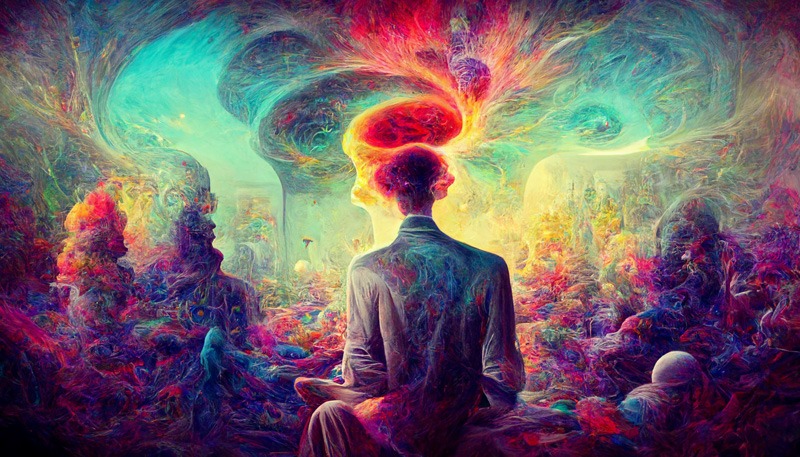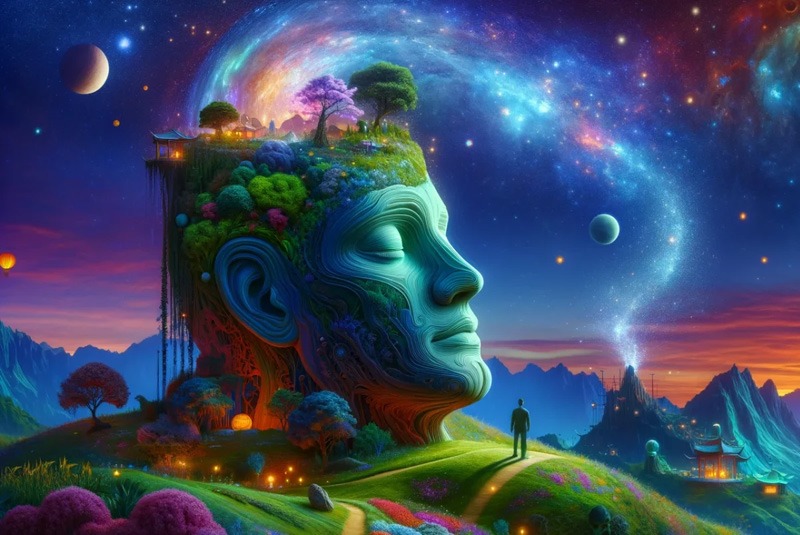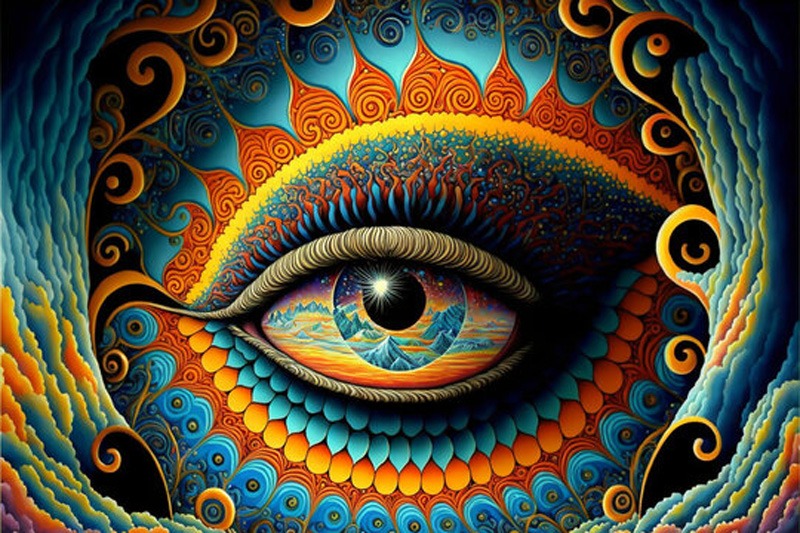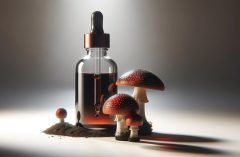Table of Contents
- 1 Introduction to Psychedelics
- 2 The History of Psychedelic Medicine
- 3 The Recent Resurgence of Interest in a Psychedelic Renaissance
- 4 The Science Behind the Therapeutic Effects of Magic Mushrooms
- 5 Current Legal Status of Psychedelics
- 6 Use of Psychedelics in Treating Mental Health Conditions
- 7
- 8
- 9 Future Outlook and Potential Impact on Traditional Medicine and the Psychedelic Renaissance
- 10 Controversies Surrounding a Psychedelic Renaissance
 Introduction to Psychedelics
Introduction to Psychedelics
Step into a world where ancient wisdom meets modern medicine, where the boundaries of consciousness are pushed and perceptions are transformed. Welcome to the psychedelic renaissance, a time when magic mushrooms are making waves in the field of healthcare like never before. Join us on a journey through history, science, and controversy as we explore how these mystical fungi are changing the landscape of medicine as we know it.
The History of Psychedelic Medicine
The history of psychedelic medicine dates back thousands of years, with indigenous cultures using natural psychedelics in healing rituals and spiritual ceremonies. Ancient civilizations recognized the profound effects these substances could have on the mind and body, often attributing them to divine powers and mystical experiences.
In more recent times, psychedelic research gained traction in the mid-20th century when scientists like Albert Hofmann discovered LSD and psilocybin. These substances were initially explored for their potential therapeutic benefits in treating various mental health conditions. However, due to political and social factors, research into psychedelics was halted during the late 1960s.
Fast forward to today; there is a resurgence of interest in psychedelic medicine as researchers conduct clinical trials demonstrating promising results in treating depression, PTSD, anxiety, addiction, and other disorders. The historical journey of psychedelic medicine highlights both its ancient roots and modern advancements that continue to shape its role in contemporary healthcare practices.
The Recent Resurgence of Interest in a Psychedelic Renaissance
In recent years, there has been a notable resurgence of interest in a Psychedelic Renaissance, particularly magic mushrooms. This renewed fascination stems from a growing body of research highlighting the therapeutic potential of these substances in treating various mental health conditions.
The shift in public perception can also be attributed to changing attitudes towards alternative forms of medicine and a greater openness to exploring unconventional treatment options. Additionally, advancements in scientific understanding have shed light on how psychedelics work within the brain to produce profound effects on consciousness and mood.
Moreover, prominent figures in the medical and scientific communities have begun advocating for further exploration into the therapeutic applications of psychedelics. This newfound momentum has sparked a wave of clinical trials and studies aimed at unraveling the full extent of their healing properties.
This resurgence marks an exciting time for psychedelic research and offers hope for new breakthroughs in mental healthcare that could potentially revolutionize traditional approaches to treatment.
The Science Behind the Therapeutic Effects of Magic Mushrooms
 The therapeutic effects of magic mushrooms, scientifically known as psilocybin, have been garnering attention in the medical field. Researchers are delving into how these compounds interact with the brain to produce profound psychological effects.
The therapeutic effects of magic mushrooms, scientifically known as psilocybin, have been garnering attention in the medical field. Researchers are delving into how these compounds interact with the brain to produce profound psychological effects.
Studies suggest that psilocybin can decrease activity in the default mode network of the brain, which is associated with self-referential thoughts and rumination. This temporary disruption may lead to a sense of ego dissolution and increased openness.
Furthermore, magic mushrooms have shown promise in treating conditions like depression, anxiety, PTSD, and even addiction. The psychedelic experience is believed to promote introspection and emotional processing on a deep level.
While more research is needed to fully understand how magic mushrooms work therapeutically, early findings indicate their potential for revolutionizing mental health treatment paradigms. The intricate dance between psychedelics and the human mind continues to intrigue scientists worldwide.
Current Legal Status of Psychedelics
The legal status of psychedelics, including magic mushrooms, varies widely across the globe. In some countries, these substances are strictly prohibited and classified as illegal drugs. However, there has been a shift in recent years towards decriminalization and even legalization for therapeutic use.
Countries like the Netherlands have a more lenient approach towards this new Psychedelic Renaissance, allowing for their sale and consumption in certain controlled settings. On the other hand, places like the United States still classify them as Schedule I drugs with no accepted medical use.
This conflicting legal landscape has sparked debates about the potential benefits versus risks of using psychedelics for medicinal purposes. As research continues to uncover their therapeutic potential, advocates push for changes in legislation to allow for more widespread access under controlled conditions.
Navigating the legal complexities surrounding psychedelics remains a challenge for both researchers and individuals seeking alternative treatments for mental health conditions.
Use of Psychedelics in Treating Mental Health Conditions
 Psychedelics, particularly magic mushrooms, have been gaining attention for their potential therapeutic benefits in treating mental health conditions. Research suggests that substances like psilocybin can be effective in helping individuals struggling with depression, anxiety, PTSD, and addiction.
Psychedelics, particularly magic mushrooms, have been gaining attention for their potential therapeutic benefits in treating mental health conditions. Research suggests that substances like psilocybin can be effective in helping individuals struggling with depression, anxiety, PTSD, and addiction.
The psychedelic experience induced by magic mushrooms is said to help individuals gain new perspectives and insights into their thoughts and emotions. This can lead to profound personal growth and healing on a deep level.
Clinical studies have shown promising results in using psychedelics as a complementary treatment alongside psychotherapy. Patients report reduced symptoms, increased emotional openness, and enhanced overall well-being after undergoing psychedelic-assisted therapy sessions.
While the idea of using psychedelics for mental health treatment may still seem controversial to some, the growing body of research supports its potential as a breakthrough therapy option. The future holds exciting possibilities for integrating these natural compounds into mainstream medicine for the betterment of those suffering from various mental health conditions.
Future Outlook and Potential Impact on Traditional Medicine and the Psychedelic Renaissance
As we look towards the future of this Psychedelic Renaissance, the potential impact of psychedelic medicine on traditional healthcare is both intriguing and promising. The growing body of research suggests that magic mushrooms could revolutionize how we approach mental health treatments in mainstream medicine.
Imagine a world where psychedelics are integrated into therapy sessions for depression, anxiety, PTSD, and addiction – offering new hope for those who have not responded to conventional treatments. This shift has the power to reshape our understanding of mental health and wellness.
Furthermore, as more studies demonstrate the therapeutic benefits of psychedelics, there is a possibility that regulations may evolve to allow for their legal use in medical settings. This could open doors to innovative treatment options that were once considered taboo.
While challenges and debates remain around the integration of psychedelics into traditional medicine practices, it’s evident that this renaissance holds profound potential to transform how we approach healing and well-being in the years ahead.
Controversies Surrounding a Psychedelic Renaissance
In the midst of the psychedelic renaissance, there are undoubtedly controversies surrounding the use of these substances in medicine. Critics raise concerns about potential misuse, long-term effects on mental health, and societal implications. The legal status of psychedelics also poses a challenge to widespread acceptance and research.
However, proponents argue that when used responsibly under controlled settings, magic mushrooms have shown promising results in treating various mental health conditions where traditional treatments have fallen short. The growing body of scientific evidence supporting their therapeutic benefits cannot be ignored.
As we navigate through this evolving landscape of psychedelic medicine, it is crucial to approach with an open mind and rigorous research protocols. While controversies may persist, the potential impact that magic mushrooms could have on revolutionizing mental healthcare is a compelling reason to continue exploring their therapeutic potential.
More on Psychedelics in Spinfuel
A 2024 Insightful Guide: What to Anticipate During a Grand Psilocybin Journey with Magic Mushrooms
Using Magic Mushrooms in Modern Psychiatry 2023 Updated Report
The Psilocybin Experience: Utilizing Psychedelic Mushrooms for Consciousness Expansion
Why Magic Mushrooms Should Be On Your Wellness Wishlist In 2022



 Introduction to Psychedelics
Introduction to Psychedelics

